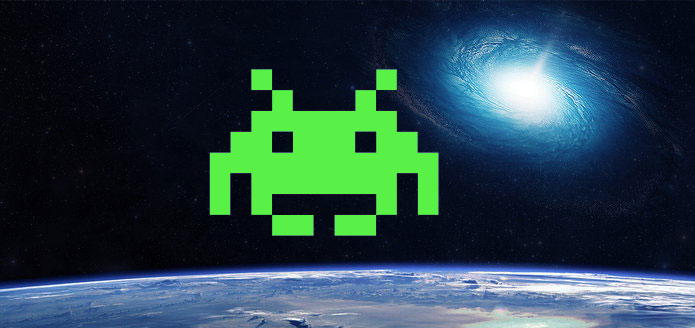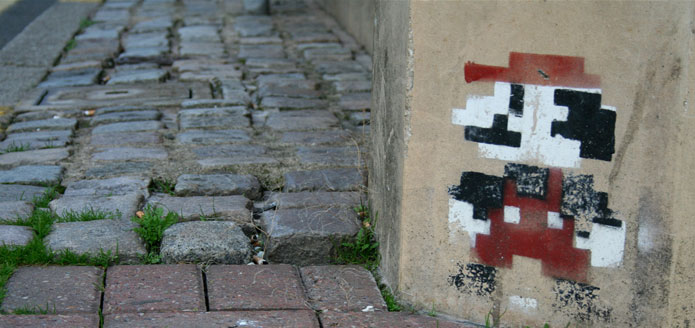We spend more than 50 hours a week watching television, surfing on the Internet and playing video games. Today, entertainment became the first activity of people in all industrialized countries.
A synonym of entertainment is distraction, whose etymology means: diversion of attention. In other words, we spend most of our time to divert our mind of something.
But what exactly? Maybe the sadness of our collective failure.
Economic and social injustices, wars, resource depletion, ecological suffering … The list of ills of humanity continues to lengthen every day. We know that we are on the brink of a global disaster. We know we have to focus all of our resources to find solutions. Instead of that, we only put more and more energy to keep distracting ourselves, exactly as if we had already accepted that the story we live could never have a happy ending.
Therefore, it is no wonder that the time we spend entertaining beats all historical records. Similarly, people went to see shows and movies in the theater a few weeks before the outbreak of the Second World War. Mankind has this annoying tendency to flee into the comforting and colorful bubbles of fiction and to focus on frivolities instead of confronting its problems.
The death of fables
« The apparition of fables begins anew at the moment where ends the influence of those real or conventional truths which lend a remnant of soul to the well-worn mechanism of civilization. (…)
If the human spirit did not still delight in lively and brilliant chimeras, when it has touched all the uncovered, repulsive realities of the real world, this period of disillusionment would fall prey to the most violent despair, and society would reveal the most fearsome revelation of unanimous need for dissolution and suicide. »Charles Nodier, 1830, Du fantastique en littérature.
Faced with an unbearable reality, the fiction allows us to experiment an environment that meets our expectations. Who would want to see the naked truth? Sprawling cities of concrete populated with sad and pressed faces; whole regions of the world sunken in chaos and misery; a climate change looming over the globe like a sword of Damocles.
No wonder that our first reaction when we leave our work is to play Candy Crush or Flappy Bird on our smartphone before returning home to entertain us on social networks or watch an episode of Game of Thrones. This same mechanism is repeated all over the world because it is the only way for our mind to keep a semblance of stability.
No more wonder that most of TV programs throughout the World alternate news and dramas. First, they show us the world in all its ugliness, causing a need to escape. And then they present us fictions where a muscular hero will save us. A shimmering universe whose features are the exact contrary of the world in which we live.
We believe that we became more rational and more able to bear the truth, but in fact, our collective psyche has changed very little. We still need to tell ourselves stories, and the most successful of them are still the ones built like fables.
The fable usually pits a negative force against a positive one, the hero being the catalyst of their struggle. He or she passes through the various stages of initiation before the positive principle can triumph. In Sumerian myths, Lotan (called Leviathan by the Hebrew) represents the primordial Chaos. As in almost all cultures, the dragon symbolizes the formless and undifferentiated: by killing him, the hero puts an end to entropy, and allows the renewal of the cosmic order of the World. Such responds to one of the most basic needs of the human mind, who needs to feel that the form of reality is maintained by an active power, thus preventing its degeneration.
Star Wars, The Lord of the Rings, Harry Potter follow scrupulously this narrative structure, but it is also true of most of the most successful video game, where the player interprets a hero who go through an ordreal to reveal his true strength and finally redefine the equilibrium of the universe around him.
Unfortunately, this magic remains adulterated. We may play Batman and punish criminals in the streets of Gotham or play Aragorn and cut into slices the hordes of Sauron, but this will never be more than a breakaway from a dull reality. In the real world, the same injustices continue to be present, and the symbolic death of evil in the game will change nothing to it.
In fact, since the game diverts our energy from the suffering in the real world, it has become a part of the problem. And because the sad reality will take over as soon as we turn off our computer or get out of the movie theater, we will have to constantly increase the dose of fiction in our life to bear a more and more painful reality.
The evil continues to act in the background of the remedy, because the more we distract ourselves in fictional universes where justice always triumphs, the more we become helpless. And at the end, the heroes we invented will only remind us that the character we play in our real life dies with no reason, and without even having the chance to achieve anything important at all.
Turning the tables
« They say tomorrow, Geeks will save the World. But tomorrow, I have a LAN*. »
Geek saying
*Local Area Network = multiplayer video game
So, is all already lost?
I could conclude this article by asking people to stop playing and to start awakening. But the truth is that we are too far gone.
I have finally understood that when you truly want to change things, it is much more efficient to turn the defects of mankind into strengths than to rely on our sole qualities.
Since humanity is already some much into playing games, my proposition is simple: let’s go as far into gaming as we can, until we unveil its extraordinary power to change the world.
Think about it: humanity spends over 3 billion hours each week playing video games. This means that we have reached a point where we permanently release a phenomenal amount of psychic energy in the virtual world.
This energy release has already a collective dimension, since most games are multiplayer and integrate a social dimension.
The only missing ingredient is the return to reality. But this has already been initiated by the serious gaming and the use of video games for educational or professional purposes. Serious games have grown tremendously in recent years and are now being used by more and more companies to facilitate learning and awareness.
Now, try to imagine what would happen it we bring this one step further and mix theserious gamewiththepower of modernvideo games?
Imagine an online game with millions of players, but the quests and missions would be fulfilled not only in the game, but in the real world. People would gather in cyberspace to develop joint projects. Then they would assign tasks to be performed in the material world.
As in an online game, players belong to guilds, could grow in experience and would be rewarded for their accomplishments. But instead of being limited into the virtual, the scope of the game would be the World.
All the energy that is currently contained in the digital space could then power a new type of collective action in the reality. The relationship would be reversed: the digital world would become the space in which we meet to discuss and decide a course of action to follow, and our physical body in the material world would become our avatar.
From Serious games to Reality games
« The further you get into technology, the furter you get into gaming. That’s the general rule. »
Nick Johnson.
You think what I am describing here is a scenario of science fiction? Something that may happen, but in a century or two? Think again.
All the ingredients are now combined to make this happen: we already spend much of our time playing; Serious games have opened the way back to reality; we are in a context of overall socio-economic crisis that calls unprecedented solutions…
If Geeks do not have time to save the world because they are too busy to play, never mind: let’s turn the real world into a game!
Traditional governance systems are running out of gas. They has led us in a blind alley. And Internet reinvented everything, except politics.
I believe the way new generations will make decisions for their collective destiny will have absolutely nothing to do with anything we experienced before.
More and more people step aside from political commitment because they feel it will not bring any real answer or individual opportunity of accomplishment. However, the games allow them to experience the greatest human feelings.
What makes stories great is their capacity to draw from the forces of life. Through the heroes we interpret, we like to be scared; we like to be proven; we love and we suffer. And through them, we can overcome fear and suffering and achieve something greater: hope, faith, courage.
The only thing missing piece of the puzzle is a proper channel to create a feedback on reality. And when it will happen, Internet will grow out of its phase of adolescence to become adult.
The Internet has always been essentially political: it is a virtual representation of the city made possible by technology. And the Internet has always been playful by essence, for the game is the best way to evolve, learn and act.
When the twowill meet, this will be the beginning of a new era.


